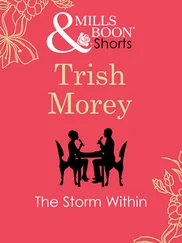“How pretty she looks.” Betsy said.
Armanda cocked her head to one side and looked at the photo, slightly confused. Suddenly she felt the memory of herself with the little girl come flooding over her.
“Oh, my sweetie pie …” She stopped short.
Extremely elegant, as only a four-and-a-half-year-old bridesmaid can be, Nadja had walked all the way across the room, hopped and skipped a couple of times, never once blinking her large pale green eyes, till she jumped with outstretched little hands onto Armanda, smiling under her palm tree. A little game. Definitely. A little act of aggression, like a cat that forgets what it’s doing for a moment because it’s been blissfully stroked for too long. Suddenly a smack from the little hand landed unhappily on Armanda’s outstretched cheek, and little fingers clutched at the pearls on one of her earrings, which got torn off. Inadvertent, really not intended. Can happen. But the little girl in her white dress, with the copper-red hair, knew nothing, absolutely nothing about the fact that before her mother there had been another mother, as nobody in the first chaotic days had wanted to talk to her about it and afterward it just hadn’t happened; and the little girl stood there looking at the blood welling out of Armanda’s ear, as if this stream of red was the very thing she had wanted to see on this memorable day. Armanda had risen to her feet. She had bent down, taken Nadja by the hand, and pulled her along. And while several of the guests got onto their knees to search for the pearl, Armanda and Nadja spun round in a merry circle to one of the Viennese waltzes being played at top speed by the three musicians. Whenever her feet left the floor entirely, the little one crowed with laughter. At one moment Armanda felt a stab of a compulsion — which would only grow stronger between the time of the party and the session with the photos — both to hug her small dance partner and to join her in bursting into tears.
A little cough. Betsy was watching her discreetly out of the corner of her eye, as she could feel. Oh, Nadja, she thought. Oh, such a pitiable little creature, who first of all has no real mother, only a substitute, in a world in which you can expire in thunder and lightning like a heroine in a tragedy, but in which you can also be granted the freedom to live a totally banal life from one day to the next, with no greater mystery to struggle with than one you’ve inherited from someone else. Oh, poor little half-orphan!
“You know,” she said to Betsy, “maybe you’ll think I’m crazy for saying this, and even crazier for saying it to you of all people, so please don’t take it badly, but in some way I feel like a half-orphan.”
They stared at each other for a moment, each of them unfathomable, and Armanda said quickly, “I mean, a half-orphan as regards my own life. Everyone has a past and a future, which sounds really banal, you’ll say, but I don’t care, that’s how it is.”
Betsy, up for more, kept quiet.
“Yes, really, everyone has a past, a run-up to the present, and that’s your youth, at least for normal mortals, in which you were already fully the creature that you are now, it wouldn’t be possible any other way, would it, but mostly it first took the form of a promise. I know, nice story, my run-up to today isn’t to be found in my past, it’s … tsch … it’s in my dead sister. So let’s …” She turned around, reached for the tea things, and stared crossly at the photos of the most beautiful day of her life. “Just call my past what it really is: a step-past.”
Betsy, who had promised only to stay a minute and didn’t want to offer the slightest excuse for more tea to be brewed, started making hasty, spur-of-the-moment remarks about starting a new life, which were meant to cheer her up. She, Armanda, she said, was herself, Armanda, and absolutely nothing could prevent her from choosing her own path through life and making it a great success. Finish your studies first, you hear me? Get your hair cut. Paint the doors and stairs in your house blue or green. Buy yourself a ficus tree….
But Armanda kept shaking her head thoughtfully as Betsy, all excited, came to the end of her long list with: “Love your husband!” And gave a merry look as she brought up the night at the school play; she and Lidy had got the giggles when the leading actor, who was seriously drunk, said, “If you’re on the planet, it’s a fact that you’ve got a no-account job in nowheresville.”
“Well, Betsy, don’t misunderstand me, but how does this sound? ‘If I’m on the planet, it’s a fact that strictly speaking I’m my elder sister.’”
Armanda chose a cookie, a café noir, Betsy did the same, and for a moment the two of them stood there nibbling, first with a grin, then expressionlessly, but quite peacefully; for their conjoint nibbling was actually an echo of Lidy and Armanda as sisters, since everyone always said they were exactly alike.
“Absolutely not,” Armanda suddenly said unexpectedly. “We distinguished between the two of us the way only sisters can. We knew it. If you live that close together, if you grow up minute by minute in a world that’s almost yours, but by a hair’s breadth not quite, then you register the tiniest things about each other that are different.”
Her face was animated now. Had she not at that moment heard the front door opening and closing downstairs, she would have been able to chatter with her beloved visitor. For however odd, even mad, her conversation with her mother had seemed a short while ago, she had felt that she was being completely rational in the other conversation that had just followed it. “Fundamentally different!” she had said again. “Brothers always want to be the opposite of brothers, and sisters of sisters. Oppositeness is at the root of the brother or sister relationship. I’m pretty certain that’s the case. So now that my past has been exchanged for hers, while her future has passed to me, there’s this veil of bottomless sadness, though naturally I try to ignore it.”
That is roughly the kind of thing she might have said, slightly breathlessly but in a heartfelt way, if she hadn’t heard someone coming up the stairs.
She blushed.
Sjoerd and Armanda Blaauw-Brouwer. Married couple.
They too took a brief look at the photographs together, why is not clear, for the two of them were focused on something else entirely; Sjoerd had just thrown the jacket of his beautiful light gray suit onto a chair. He was now in his late twenties, a tall, slender man with carefully combed blond hair and a face that was beginning to show the open, straightforward, intelligent qualities that are valued in the world of money and business. With an arm around Armanda’s hips, he bent loyally over the photos. It’s well known that when a newly married couple first sees their wedding portrait, the bride looks only at the bride and the bridegroom does the same. One could switch bridegrooms in the darkroom for fun, but never brides.
“Beautiful,” murmured Sjoerd, without the faintest astonishment over the snow-white dress lifting away from the neck and the little hat, perched at an angle to set off the beloved little face, and the bouquet held up under the chin, that he must know from a previous photo, already glued into the album, in the same always-flattering three-quarter pose. His eyes were already elsewhere. He turned around purposefully and felt Armanda’s whole body respond immediately, as he had expected, with a yes! yes! During this afternoon’s meeting with the administrative department of the Capital Investment Committee of Mees & Hope, he had felt as miserable as a dog, almost ill with sheer repressed impatience to get home. It was his first week back at work after his ten-day honeymoon, the first three days of which had been extremely peculiar, because after so much hesitation, he and Armanda had felt no desire for each other at all.
Читать дальше












